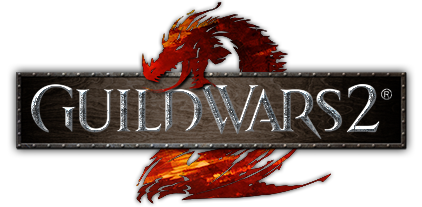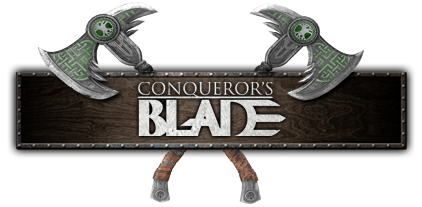PvP in Pathfinder Online
At the core of Pathfinder Online is player versus player (or PvP) combat. A variety of contexts gives meaning to these brutal battles of sword and spell, but whether fighting for revenge, faith, or political power, the Crusader Road is a wild and dangerous place driven by conflict. Survival and success will require players to forge alliances, organize companies, or perhaps create fragile accords, but even for the most diplomatic of players there is no substitute for a sharpened blade or a torrent of arcane power. Today I'll be sketching out a broad overview of the different levels of PvP combat and the motivations that drive combat from duels to skirmishes to pitched battles including hundreds of players at a time.
Settlement Conflict
Pathfinder Online's settlements involve large numbers of players in their founding, management, and defense, allowing ambitious coalitions of companies to alter the geography of the Crusader Road. Most settlements will likely number hundreds of members, and we anticipate that almost all Pathfinder Online players will at some stage be a member of a player-run settlement, and therefore potentially involved with settlement PvP. This may be participation as a settlement member, a member of a company allied to a settlement at war, membership in a mercenary company selling its services, or simply as an opportunist looking for spoils.
Settlements have a powerful PvP tool at their disposal: War. A settlement can declare war against another, allowing the members of each to engage in PvP against enemy characters without alignment or reputation penalties. Declaring and maintaining a state of war requires a settlement to spend a large amount of coin and to set aside a portion of its Development Indexes (the measure of a settlement's advancement) and is expensive, so settlements will most likely declare a single war at a time. Declarations of war are one-sided, so settlements cannot refuse to be the target of a war, but the costs of the declaration are determined by the relative Development Indexes and Populations of the settlements. Because of this, larger settlements find it more expensive to go to war with smaller settlements, and settlements who add to their ranks after the declaration of war will see the upkeep cost of the war increase. The longer the war persists, the more the costs increase and the more the settlement suffers as they lose money and buildings shut down due to lost Development Indexes. Settlement conflicts can send an entire region into turmoil with the potential for significant collateral damage.
Settlement wars are declared by the players who hold the settlement's leadership positions, so it's possible for the Powers That Be to potentially hurl an unwilling population into conflict. War-mongering settlement rulers can cause significant damage to their settlement's DI, and perhaps more importantly to the goodwill of members. Destabilizing an entire region for an extended period will likely be bad news for everyone, so settlement leaders had better be damned sure of their war aims before committing to conflict. Wars end when the declaring settlement stops sustaining the war or one of the settlements involved is destroyed, but once a war ends a new one cannot be declared for at least a week. In addition, it takes for a settlement to recover the Development Index points it used to support the war; rushing into another war before your training and crafting facilities are all back to full functionality is not a wise decision.
Ultimately, settlement warfare is about conquest and territory control. Naturally, you win if your settlement successfully sacks and takes over the enemy settlement. However, because of the expensive and time-consuming nature of settlement growth and management, it is much more likely that settlements will go to war to annex each other's resources rather than to breach the walls of each other's cities. Destroying an enemy settlement outright is difficult, but seizing control of a disputed border region—for example, a useful hex or two that lie between settlements—is a more manageable task. All settlements will eventually want to bring under their control as many resource hexes and their points of interest as they can hold. Whether your settlement accepts a loss of territory and sues for peace or doggedly fights on to destruction or victory is, of course, up to you.
Company Conflict
Companies are smaller player-managed organizations with anywhere from 8 to 50 or more members. These organizations may control a point-of-interest holding in a wilderness hex, engage in management activities for other companies or settlements, or may be organized for trade, for roleplaying purposes, or simply as groups of like-minded friends. Much as settlements can declare war on other settlements, companies have the power to declare a feud against another company. Companies don't have DI (development index) to spend on feuds, so instead they spend their Influence. This Influence cost is a continuing drain over time, making it impractical to maintain more than one or two feuds simultaneously or for extended periods. Players whose companies are involved in a feud may kill enemy characters without reputation or alignment loss, making feuds the primary mechanism of cross-company PvP.
Feuds target only members of the specific enemy company, and do not extend to their allies. They are easier to initiate than warfare and last for a shorter time, allowing two companies to engage in meaningful PvP (perhaps over resources, for domination in an escalation cycle, or simply for the joy of combat) over the course of a few days of game time. Feuds will make up a good portion of the "weekend warrior" type PvP—players focused on PvP who are seeking the thrill of battle for a few hours each weekend. Feuds also offer companies a way to engage in conflict even when they are allied to the same settlement. This allows for challenges and competition over management rights, ownership of holdings in wilderness hexes, or even PvP for sport and training.
While feuds are typically a company vs. company affair, a company can also declare a feud against an enemy settlement. This allows a company to launch a raid against holdings in the hexes controlled by rival settlements or engage in low-level skirmishing or guerilla warfare against a target of opportunity. While most settlements command sufficient numbers and resources to crush a single raiding company, getting those defenders to the right place at the right time to protect outlying territory isn't always easy (which is why smart settlements will work with allied companies to safeguard their resource-generating structures in neighboring hexes).
Factional Conflict
We will cover the specifics of faction membership in a later blog post, but here is a brief overview: Any player who meets the requirements may join a faction such as the Eagle Knights, the Pathfinders, or the Church of Iomedae. Each faction has a number of allies and enemies. You may be a member of multiple factions if you wish, but you must meet the requirements for each, including not already being a member of an opposing faction. Faction standing can then be earned by completing quests and achievements for your chosen faction.
In our earliest design documents, we put a lot of emphasis on combat between players of opposing alignments. In recent months, we've decided to shift the focus slightly to bring it more in line with the world of Pathfinder. Good and evil characters are not constantly at each other's throats over matters of philosophy in Golarion. Indeed, killing creatures based on alignment alone is sanctioned by few. Much more important are the tense and complicated relationships between rival factions—and this is where we have chosen to refocus the world for opt-in PvP. By "opt-in," we mean that individual players choose how much PvP they want to see outside the larger struggles of settlements and companies. (Of course, PvP is possible at any stage in Pathfinder Online, but without the sanction of warfare, bounties, feuds, or voluntary player actions—characters performing criminal or heinous acts, for example—there are consequences of reputation and alignment.)
Factional conflict is driven by narrative as much as player action. The relationships between factions are determined by the lore of Golarion and may shift over time, influencing individual PvP opportunities. Faction membership is optional, and reaching a level where PvP is inevitable requires deliberate action on the part of a player. Players looking to minimize their PvP participation need only avoid entanglements in warlike factions, while players looking to maximize their opportunities for sanctioned PvP (i.e., PvP that won't cause alignment or reputation losses) can seek out militant factions and focus on foes who have chosen to side with enemy organizations.
Standing is divided into six ranks, each providing a scaling benefit to members. Once you reach rank 4 or above with a particular faction you are automatically flagged as a PvP target for members of opposing factions who are also rank 4 or above. When you are a member of a faction at any level, you can also choose to flag yourself "for the cause", marking yourself as a PvP target for enemies of rank 4 or above in enemy factions and for "for the cause" players of those factions. Engaging in combat with flagged players attracts no reputation loss for attacker or defender.
Some factions offer more in the way of PvP than others, reflecting different play-styles in game. There are some factions for whom PvP is a rare and gut-wrenching moment out in the wild, while others find themselves in constant conflict. The granular nature of the system allows players to engage in as much or as little risk as they wish, earning rewards in equal measure. And, of course, some players will choose to avoid the faction system all together, allowing them to opt out of PvP in all but settlement level conflict.
Factional PvP allows players who are alone or in small groups to engage in meaningful PvP without reputation loss even when no war or feud is taking place. It allows for roaming PvP, and a player who wishes to engage in such can join a slew of factions in order to gain a slew of enemies in return. The "for the cause" choice allows even players with only limited faction standing to pick up a significant number of enemies relatively quickly, and to make themselves a target for open-world PvP at all times.
The narrative aspect of factional PvP gives players the chance to influence the political development of those areas of the River Kingdoms not controlled by players. It presents a powerful introduction to the world of Golarion and helps to blur the line between 'safe zones', PC settlements, and player-controlled content.
PvP Flags Revisited
With the introduction of factional instead of alignment-based conflict, the flag system has seen a significant rethink. Again this will be covered in detail in another post (I'm aware I've already gone on for a long while in this one!) but here's a quick overview to whet your whistle:
The alignment-based flags have been removed in favor of the "for the cause" flags of factional combat. Benefits associated with the Enforcer and Champion flags are now tied to alignment score and to factional membership, and the Assassin and Stand and Deliver special abilities have been moved to skill-based functionality, rather than flag-based functionality. The Criminal and Heinous flags remain, however, so that individuals who wish to police the game-world and punish evil or lawless characters can do so (another interesting area for PvP combat).
Alignment and Reputation in PvP
This blog post is mainly about systems that allow players to engage in PvP conflicts without suffering alignment or reputation loss for their actions. When you attack someone you are at war with, in a feud with, or who is a ranking member of an enemy faction, you do not lose reputation or suffer alignment modification for the act. If your enemy does not fall into one of those categories, you lose both alignment and reputation for attacking someone unprovoked, the specifics of which depend on the reputation of the target, where the attack takes place, local laws, and so on. So while these systems make it more likely to be attacked if you are involved in a war, feud, or faction, no one is totally safe.
If a third party becomes involved in a war, feud, or faction fight, they gain any flags or reputation and alignment penalties as normal. So if you are at war with a settlement and a friend from a third settlement heals you, he is treated as intervening in an ongoing combat and becomes a free target to your enemies.
Bounties
Finally, a quick word about bounties. Bounties still exist as ways for individuals to mark others for PvP. Bounties are expensive to individual players and are not a tool for everyday use, but we have expanded the list of crimes appropriate for death curses and bounties to include more anti-social behavior such as ganking, ninja-looting, and cheating a guild or settlement.

























